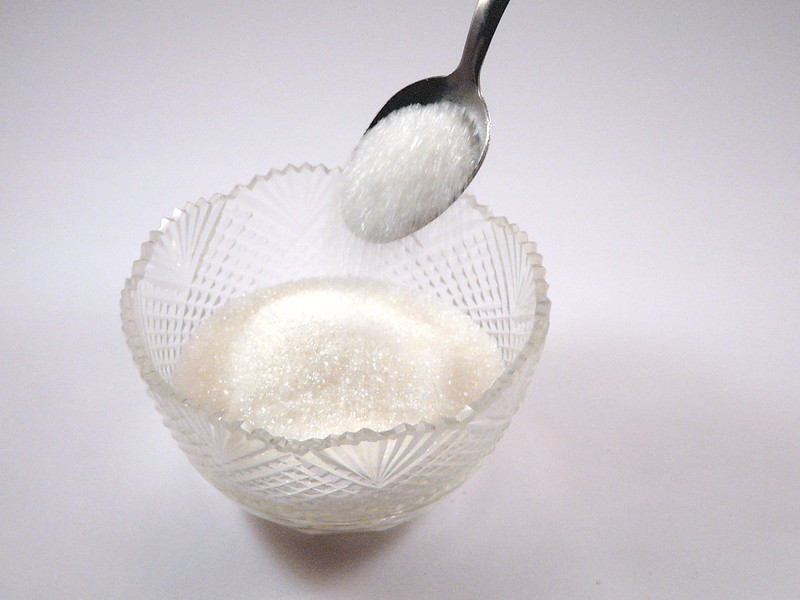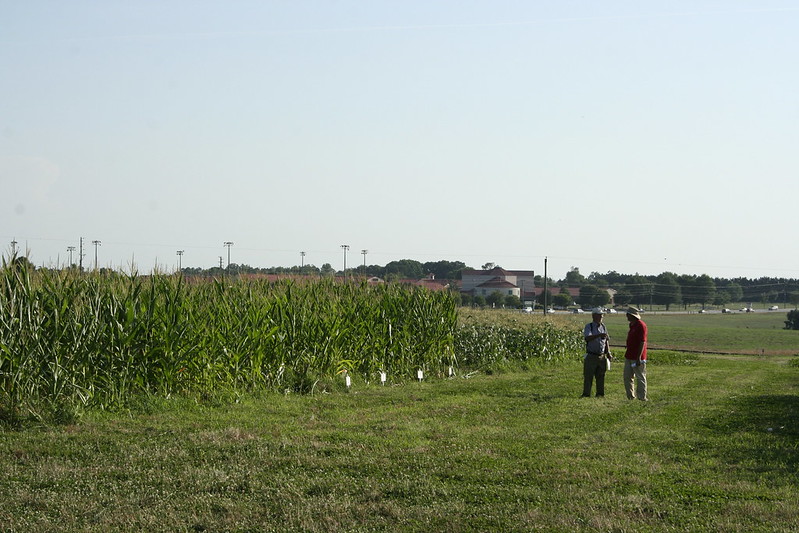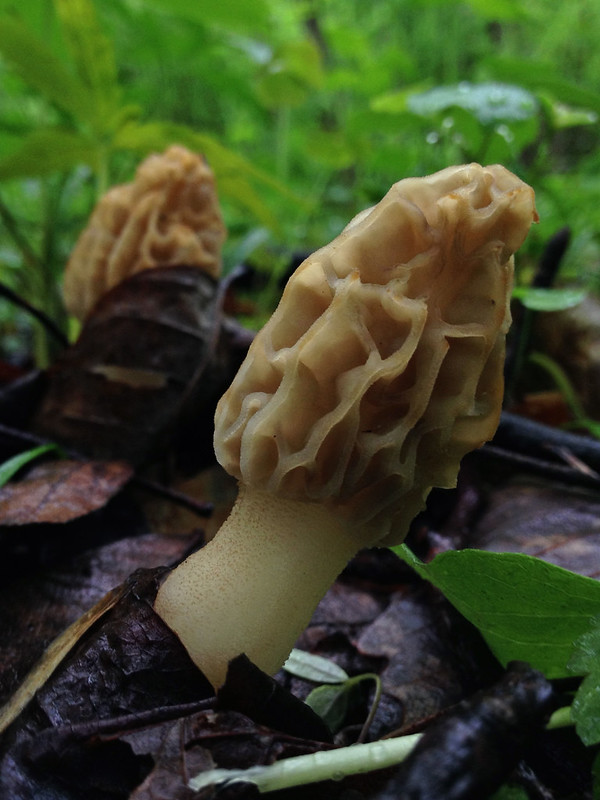By Karin Cho (in conjunction with other SMF writers)
Christmas is just around the corner, and for the last blog post of the year, some of the authors have shared a fun food science fact they learned, along with a topic/concept/idea that the authors are excited to learn about in 2022.
Editor: Elliot Dhuey
A fun food science fact: ”This year I learned about the transmission of viruses on packaging materials. Specifically, the COVID-19 virus is able to survive on glass and plastics for longer duration than it will on paperboard and metal surfaces. This is due to toxicity of metal on the virus (for metal surfaces) and the reduced availability of water on paperboard compared to plastics and glass. ”
What I look forward to learning in 2022: “I would like to learn more about possible emerging careers using a food science degree.”

Image Source: https://flic.kr/p/afWJmP
Author and VP of Digital and Social Media: Jacob Webster-Jones
A fun food science fact: “Sorbitol is almost identical to glucose except for one chemical group making it less digestible.”
What I look forward to learning in 2022: “I’m really interested to learn a lot behind food laws and legislations. Specifically, how safety and standard of identity for food products are determined.”

Image Source: https://flic.kr/p/bm11pL
Author: A.J. Taylor
A fun food science fact: “Biofermenters and creating products from fermentation will be the way of the food future, very shortly. There are a lot of start-ups that are focusing on fermentation to make new and old food products.”
What I look forward to learning in 2022: “I would love to know how the food industry is going to change permanently due to the pandemic / shortage of foods and how we will move to more sustainable methods of agriculture.”

Image Source: https://flic.kr/p/uW4w2P
Author: Karin Cho
A fun food science fact: “In my food processing class, we covered several non-thermal processing methods. Although the technology is not fully integrated into industry, it was interesting to learn the various processing methods that did not require heating the food above 65 ºC. One of those methods involve the use of cold plasma, which can inactivate pathogens by breaking down the DNA and proteins in a bacterial cell. ”
What I look forward to learning in 2022: “I’ve wondered how we could sustain life outside of Earth, so I am looking forward to reading more about how to grow crops in space. ”

Image Source: https://flic.kr/p/qxpVPg
Honorary Guest: Bryan Le
A fun food science fact: “Lately, I’ve been reading more about mushrooms and their uses in the food industry. One of the enzymes they produce is called laccase, a polyphenol oxidase that has a lot of interesting uses for food processing. Mycelial laccase is normally used by mushrooms to degrade lignin, which is one of the two polymers found in wood. Laccase can also be used to break down diphenols and other molecules in food products, helping to reduce the bitterness and cloudiness. For example, hazes and sediment are formed in juices, wines, and beer due to the interaction between polyphenols and proteins. Laccase breaks these down and produces stable beverages. Laccase can also be used to break down undesirable volatile compounds and improve the flavor of foods. This is especially true of oxygenated lipids like aldehyde and ketone byproducts, which gives many foods a grassy flavor and off-odors. Laccase has been used to cross-link sugar beet pectin, forming really interesting and new types of edible materials. Mushrooms are a fascinating group of organisms that have a lot to offer the food industry. I look forward to learning more about them in the upcoming year!”
What I look forward to learning in 2022: “Of course, mushrooms and fungi used in the food industry!”

Image Source: https://flic.kr/p/efneTj
If you are looking for more interesting food science facts, take a look at what the authors have published this year:
- “Do Your Genetics Affect How You Taste?” by Jacob Webster-Jones
- “Food Science – The Best Major You’ve Never Heard Of” by Abbey Thiel
- “Understanding Butter vs Margarine Controversy” by Emanueli Backes
- “The Supernatural Rise from the Dead – Ghost Kitchens” by A. J. Taylor
- “A Greater than Zero Effort for Food Waste” by A. J. Taylor
- “Pursuing a Graduate Degree in Food Science for the Non-Food Science Students: Part Three” by Karin Cho
- “Food Out of Thin Air: A Novel Approach to Alternative Protein” by Mary-Ann Chen
- “What is the Best Way to Cook Vegetables?” by Emanueli Backes
- “Why Does Chocolate Taste Good with Green Beans?” by Jacob Webster-Jones
- “Teaching Machines How to Smell” by Aishwarya Badiger
- “Mushrooms as Dietary Supplements” by Emanueli Backes
- “Taking Food to the Next Dimensions” by A. J. Taylor
- “A Discussion on Tea Pot Material” by Ming Yin Kwong
- “But(ter), What’s the Big Deal with Canada’s Butter?” by Allison Howell
- “The Science Behind Moldy Cheeses: An Interview with Dr. Maike Montanhini” by Emanueli Backes
- “’Use By’, ‘Best Before’, ‘Sell By’, ‘Best If Used By’– When is My Food No Longer Safe to Eat?” by Karin Cho
- “Microwaves: An Underrated Kitchen Appliance” by Jacob Webster-Jones
- “Trends in Food: Clean Label Bread” by Emanueli Backes
- “Can Our Diet Influence Our Genes?” by Hafida Mazoud
- “Food-Waste Valorization: Opportunities and Cautions” by Emanueli Backes
- “Food Science for Relief and Development (FSRD)—An Emerging Area of Food Science” by Abbey Thiel
- “Will the Consumption of Alternative Protein Sources Be Required in the Future?” by Emanueli Backes
- “Pursuit of Sweetness: A History of Table Sugar (Sucrose)” by Hafida Mazoud
- “Anti-nutrients: What Do We Have to Know Before Getting Scared” by Emanueli Backes
- “Brewing Up Some New Innovation!” by A. J. Taylor
- “Albino Tea, What Is It and Why Is It Special?” by Ming Yin Kwong
- “Brunost – A Delicious Valorization of Whey – Part 1” by Karin Cho
- “The Buzz on Edible Insects” by Cassandra Maya
- “Does Pineapple Belong on Pizza? The Science Behind Food Pairings” by Aishwarya Badiger
- “Clostridium botulinum: from Sausage-Poisoning to Home-Processing Hazard” by Allison Howell
- “Cannabis-Based Food Products for Health Promotion?” by Emanueli Backes
- “5-Second Rule: Can You Eat Food That Has Fallen on the Floor?” by Hafida Mazoud
- “How COVID Changed the Way We Eat”by Cassandra Maya
We wish you all a happy holidays and stop by SMF next year for more food for thought!
 Karin Cho | Linkedin
Karin Cho | Linkedin
SMF Blog Writer
Karin earned her B.A. in Biochemistry from Grinnell College, and during her time there, she was unsure how to merge her two passions for science and food. After attending several IFT events and completing a QA internship abroad, she decided to pursue a Master’s in Food Science and Technology from Iowa State University. Her research involves the development of fat alternatives. Growing up in a Chinese-Japanese household, she developed a palate for tasting new, sometimes bizarre, foods. When she’s not learning about food science, she enjoys watching science fiction movies, taking walks in parks, and learning new recipes from the people she meets during her travels.






Leave a Reply